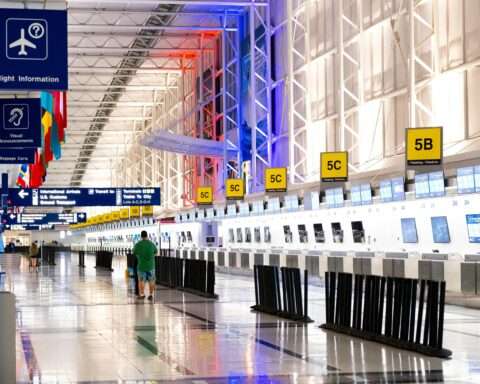School districts nationwide are taking steps to electrify their bus fleets, and the window to apply for rebates to help cover the cost of new vehicles closes Jan. 31.
The Clean School Bus (CSB) Rebate program subsidizes the cost of zero-emission (ZE) school buses, charging infrastructure and other related costs such as workforce training. School districts, Tribes, nonprofit transportation associations and eligible contractors can apply to receive rebates for up to 25 new battery electric, compressed natural gas (CNG) or propane-powered buses.
The Environmental Protection Agency (EPA) oversees the distribution of funds for the program, which was created out of the Bipartisan Infrastructure Law. Funding of $5 billion is available now for school districts to replace older diesel buses with ZE buses between 2022 and 2026. The first round of funding in 2022 awarded $900 million to 365 school districts.
“This latest round of funding for EPA’s Clean School Bus Program builds on the momentum of last year’s rebate program — which funded close to 2,500 school bus replacements — to ensure that every student across the nation has access to a safe, clean, zero-emission ride,” Gabe Klein, executive director of the Joint Office of Energy and Transportation (Joint Office), said in a news release. “School buses are the nation’s largest source of public transportation, and young people will be able to breathe easier as a direct result of this $500 million in funding.”
While the CSB program offers both grants and rebates, the rebate program is quicker, and the EPA selects recipients based on a random-number generated lottery. The program is ideal for districts with smaller fleets. The CSB grant program closed applications in August for $400 million in competitive funding and anticipates announcing the awards in February or March.
Districts applying for rebates can receive up to $345,000 per ZE bus plus the charging infrastructure if the district meets priority criteria, such as districts located in low-income, rural or Title I areas or territories. Non-priority districts can receive up to $200,000 per ZE bus. Rebates for CNG and propane buses range from $20,000-$45,000 per vehicle.
Additionally, the rebates could help cover expenses for battery electric buses, including electric meters and panels, charging stations, battery storage systems and renewable on-site power generation systems.
Applicants could also be eligible for certain tax credits through the Inflation Reduction Act, including the Commercial Clean Vehicle Credit for up to $40,000 per qualified vehicle. The Alternative Fuel Vehicle Refueling Property Credit offers up to $100,000 per qualified vehicle.
In 2022, several districts nationwide received the maximum amount of funding for 25 new ZE school buses, including the Atlanta and Clayton County public schools (CCPS) in Georgia.
For those that received rebates in 2022, next steps included proceeding with purchases of new qualified buses and submitting payment request forms with the purchase orders for the rebates.
“For years Clayton County Public Schools has prioritized student health in relation to air pollution and bus emissions by designating schools as idle-free zones,” CCPS former Superintendent Morcease Beasley said in a news release after the awards were announced. “We are being responsible by doing our part to lower emissions that are accelerating climate change.”
Strategic Partnerships, Inc. can provide information on contract opportunities, plus existing and future government funding. For more information, contact research@spartnerships.com.












